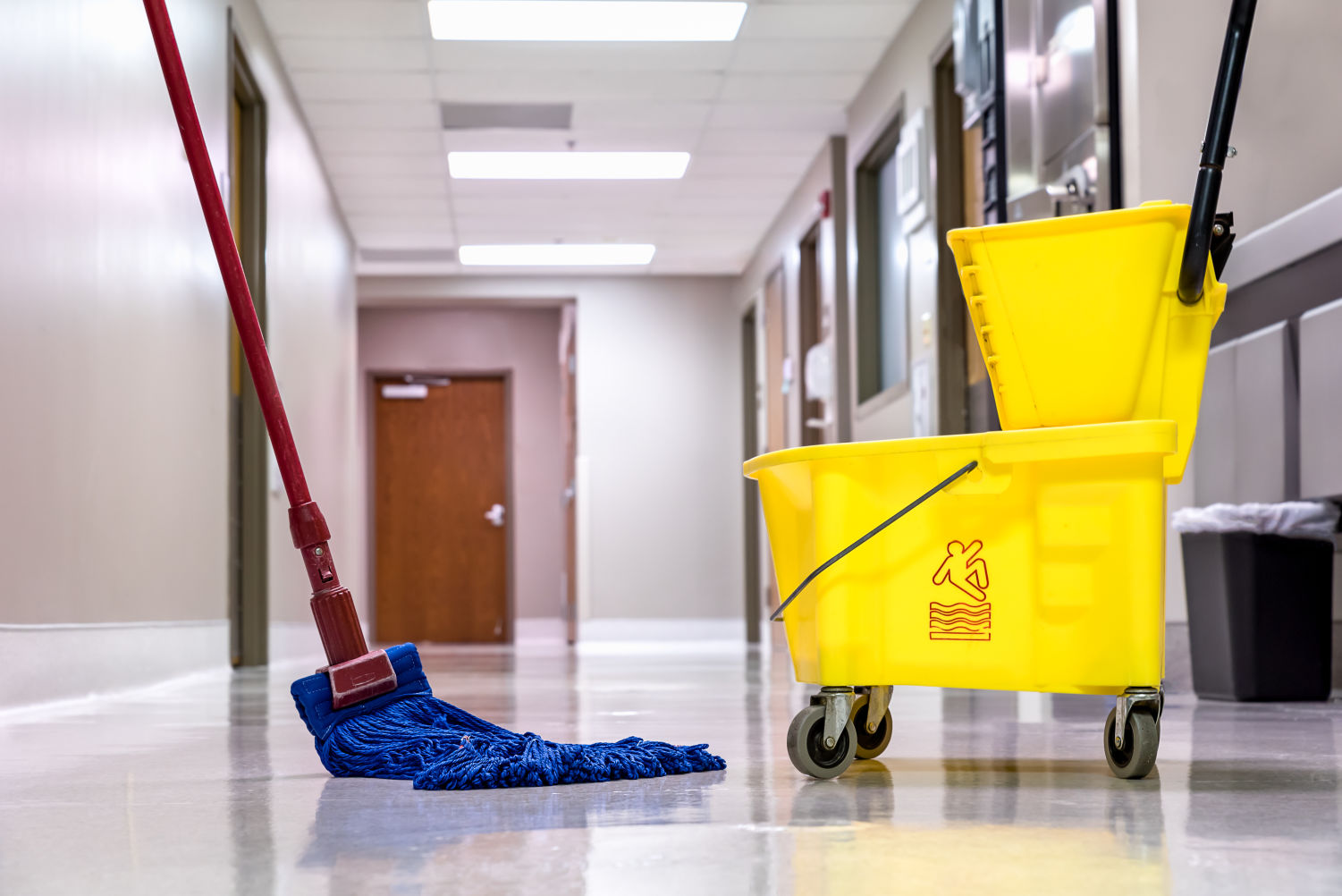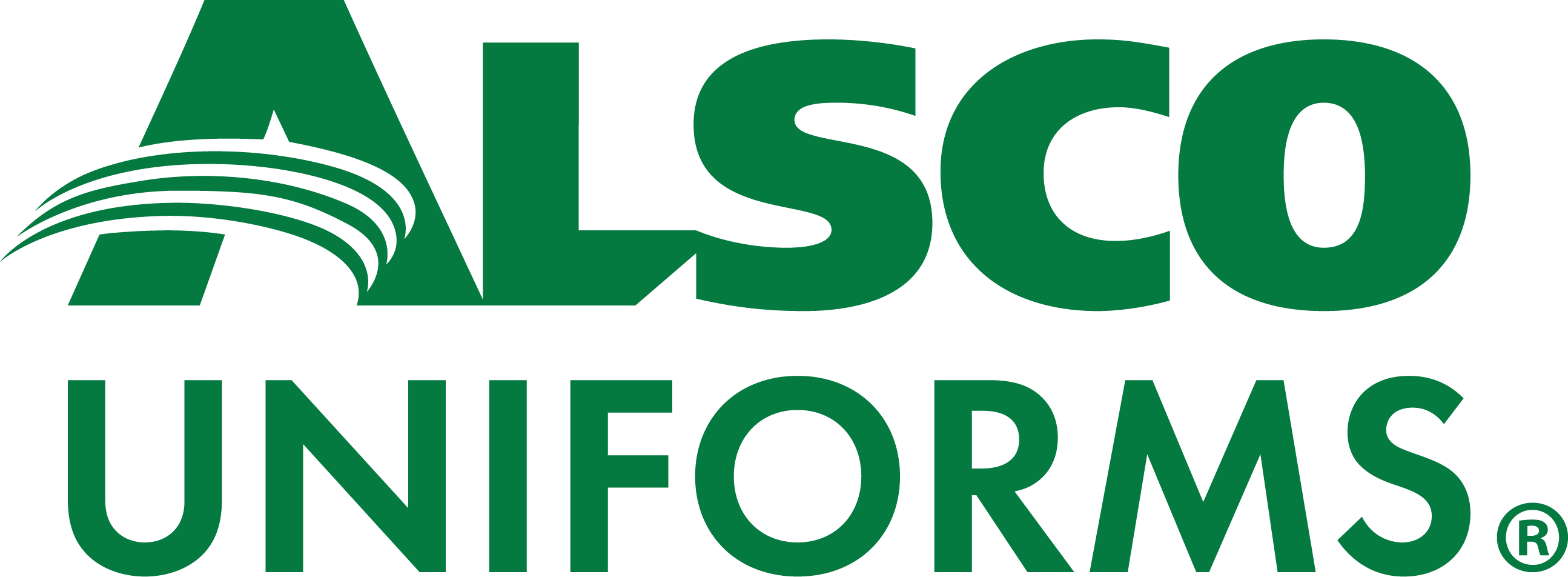
If you clean floors with a dirty mop, you’ll just be moving around dirt, bacteria and grime rather than actually cleaning the floors. You should clean a mop after every use to maximize its effectiveness and life span.
Ideally, you should clean your mop, removing dirt and grime, after every use. Additionally, we recommend that you disinfect your mop after every three to four uses. If it starts to smell before that, it should be disinfected immediately.
If your mop has a detachable head, you can clean it using the washing machine. If not, follow the steps below.
What To Use When Cleaning a Mop
Before you begin cleaning your mop, gather your supplies. You’ll need the following:
A bucket.
Hot water.
A cleaning solution (e.g., bleach, Lysol, white vinegar, hydrogen peroxide or another cleaning product).
Bleach is the best disinfectant because it kills bacteria effectively and completely. The next best disinfectant is Lysol. If you don’t want to use commercial chemicals, you can use white vinegar, hydrogen peroxide or another cleaning solution of your choice.
If you use bleach, your solution should be ½ cup of bleach to 1 gallon of hot water. If you use white vinegar, add 8 ounces of white vinegar to 1 gallon of hot water. For a hydrogen peroxide solution, mix 8 ounces of hydrogen peroxide with 1 gallon of hot water.
How To Clean a Mop
Once you have gathered your supplies, you’re ready to get started. Follow these steps to prepare a mop for professional cleaning:
Fill the bucket halfway with hot water. The temperature of the water matters because hot water is better for breaking down grease or oils on the mop.
Place the mop inside the bucket, and turn it around several times. This will release grime, dirt, germs and dust. This step should remove all surface-level dirt.
Wring out the mop, directing the dirty water into the bucket.
Fill the bucket with hot water.
Spray bleach (or your chosen cleaning solution) into the bucket.
Place the mop into the bucket, and let it sit for 30 minutes. During this time, the bleach will disinfect the mop, killing bacteria and germs.
After 30 minutes, wring out the mop, directing the dirty water into the bucket; refill the bucket with clean water.
Rinse the mop in clean water.
Wring out the mop and allow it to air-dry.
Tips for Mop Cleaning
For best results, follow these tips:
Don’t use bleach on sponge mops or synthetic mop heads. Doing so can cause the material to degrade.
Don’t leave a mop soaking too long. Remove it after 30 minutes. If it soaks for too long, the moisture may cause mold and bacteria to grow.
Wash detachable mop heads in a washing machine if the product instructions indicate it is safe to do so. Some mop heads, like those made from cloth or towel strips, can go directly into the washing machine. Wash the mop heads in hot water or on a disinfecting cycle. Wash mop heads on their own (i.e., not with towels or other linens).
Air-dry your mop head in an open, well-ventilated area. Prop it upside down so that it gets plenty of air. If you air-dry it face down on the ground, it may not dry thoroughly, causing mold or mildew to form.
Confirm the mop is fully dry before storing it.
Always store your mop head up rather than with the mop head on the floor.
Replace your mop head regularly. If it looks worn, stained or torn, it’s time for a new one.
Always sweep or vacuum a floor before mopping it.
How Often Should Mops Be Replaced?
Although you should clean your mop after every use, regular replacement is also important. Your replacement timeline will vary according to how often you use your mop and the size of the surface you mop.
As a general rule, replace your mop every 2 to 3 months and, if it is damaged or broken, replace it immediately.
Remember to disinfect your mop regularly because doing so will extend its life. If your mop still smells after you’ve disinfected it, it’s time for a new mop.
The Best Mops in the Business
At Alsco Uniforms, we’re proud to provide our customers with the best mops in the business. From wet or dry mops to microfiber mops, we can meet all your floor-care needs with our facility services. Contact us today to get started.
